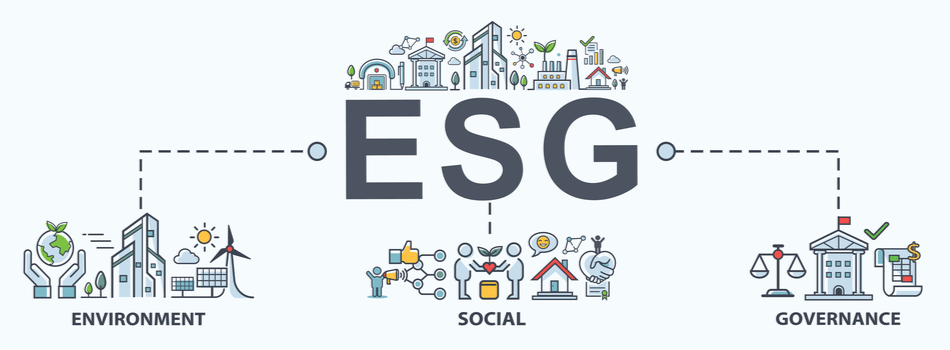
ESG investing
Investing today is no longer just about achieving returns . There seems to be a trend in which people are increasingly looking at the bigger picture. Factors such as the environment, people and society are less often overlooked. ESG investing takes these factors into account. It is a form of investing in which ‘harmful’ companies are not included in the investment portfolio. You can read more about this in the article below.
What does ESG stand for?
The abbreviation ESG stands for Environmental, Social and Governance. Loosely translated, it concerns three pillars: Environment, Society and Governance. These three pillars all have criteria with which you can ultimately determine to what extent an investment is sustainable.
The environmental criteria see companies as participants in ‘our nature’. The question is how companies perform within nature. If you look at the social criteria, you look more at relationships, for example with employees, end customers or suppliers. How does a company deal with these relationships? The last aspect concerns governance. This concerns the way in which a company is managed. For example, the remuneration that managers receive and the rights that shareholders are entitled to are examined.
‘ESG’ is a fairly technical definition. Today, it is also simply referred to as sustainable investing , impact investing or (socially) responsible investing.
Where does the ‘ESG trend’ come from?
Anyone who thinks that ESG investing is a completely new concept is not entirely correct. It has been around for about 50 years. In the past, it was practically only religious foundations that did ESG investing. Today, however, that is quite different. The trend of ESG investing is largely driven by younger investors.
The fact that younger investors are carrying the ESG trend is partly due to the popularity of ETFs . With ETFs it is relatively easy to invest in a whole set of ESG shares. Furthermore, various institutions have also increasingly started selecting shares that have an eye for sustainability, after which these are presented to investors.
How the ESG criteria work
If you really want to know what ESG investing essentially entails, it is relevant that you know which precise factors are relevant to assess whether a company meets the ESG criteria. Below you will therefore find more information about the internal criteria that are used within the pillars of environment, society and governance.

Environmental criteria
When looking at how a company performs within the environment, it is first important to look at energy consumption. Then the question is where the energy is drawn from. In addition, you look at factors such as environmental pollution, waste, conservation of natural resources and the use of animals. There are various types of regulations that impose limits on these factors, for example at the European Union level. However, the fact that these rules exist does not necessarily mean that they are always properly complied with.
Society
Here it is relevant how a company deals with its relations. For example, are suppliers treated respectfully and do the values that the company exudes correspond with this treatment? Does the company perhaps donate part of its profits to local residents and are no people exploited? You will understand that the working conditions within this pillar are a telling criterion. So it is not only about wages and vacation days, but also about health and safety on the work floor.
Governance
Governance is about transparency. First of all, it is relevant that a company uses transparent and accurate accounting. Furthermore, shareholders should not be pushed aside and they should be able to exert sufficient influence on the progress of the company. In addition, within this pillar you should investigate how clean a company is. For example, are there no underhand contributions to politics to initiate illegal practices and do the directors not put too much money in their own pockets?
The importance of ESG investing
The perfect company does not seem to exist. It will therefore not happen quickly that a company scores excellently on all three ESG pillars. It is therefore wise for you as an investor to consider what you value yourself and then select shares. With the latter, you are often well assisted by various professionals who have already made selections.
If you invest in socially responsible ways, you participate in a large-scale movement that has an eye for the future. This way, you can also make a difference as an investor. It should be said that ESG investing is not always easy, as sudden events can completely change the circumstances. In this context, think of the BP oil disaster of 2010 or the Volkswagen emissions scandal. Whether ESG investing is something for you, is ultimately up to you to decide.
Our reading tips
for the novice investor
